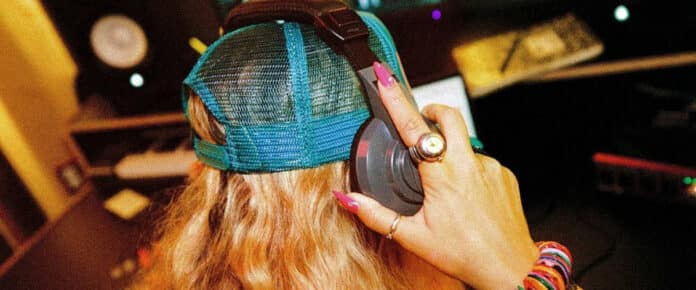
A recent survey conducted by Pirate, a global music studio network serving over 365,000 artists worldwide, has shed light on the use of Artificial Intelligence (AI) in the music industry.
The study involved over 1,000 artists from the UK, US, and Germany.
The survey revealed a growing openness to AI technology within the music community. 25% of musicians surveyed had already experimented with AI in music production. Among those who hadn’t yet, 46% expressed their willingness to consider using AI music tools in the future.
However, the survey also revealed a transparency gap, as only 48% of artists confirmed that they would inform listeners when AI was involved in creating a song. 53% of respondents had concerns about how their audience might perceive music created with the assistance of AI.
Cristoph Krey, a musician who uses Pirate’s Brooklyn rehearsal studios with his band, MYAI, stands out as an advocate for transparency in AI use. MYAI employs artificial intelligence for 30% of all their activities, alongside what they’ve termed ‘art intelligence’ for the remaining 70%. They believe that this combination helps them harness the benefits of AI without compromising authenticity. Krey, an early adopter of technology in music, partly influenced by his day job in finance, pointed out that the rapid ascent of AI could cause a gulf between those with a background in technology and those without:
What I see as a negative is, if you don’t have any sort of technology background, it is a huge learning curve for a lot of artists to get involved with AI. It’s one more thing that artists now have to do on top of everything else that they have to do to create value. – Cristoph Krey, Artist, MYAI
Indeed, artists retraining is another trend that emerged from Pirate’s survey. Notably, 55% of artists are actively acquiring new skills in response to ongoing advancements in AI – 28% are learning AI-related skills, while 37% are learning skills unrelated to AI.
Overall, the survey unveiled a mix of excitement, fear, and challenges surrounding AI in music. ‘Curiosity’ emerged as the primary motivator for artists embracing AI, followed by ‘Enhanced Creativity’ and ‘Efficiency’. For those who remain uncertain, ‘Loss of Authenticity’ was the most common concern, tied to public perception. Pirate’s CEO, David Borrie, addressed artists’ fears about using and being known to use AI:
Understandably, artists are hesitant about adopting AI in the studio, and also hesitant about broadcasting their use of this controversial new technology. It’s useful to look back at the introduction of tools like autotune which faced criticism in their early days, but eventually found their place in the music industry. AI’s journey toward becoming a standard tool in music creation may follow a similar path, as artists and audiences alike adapt to this innovation. – David Borrie, CEO, Pirate









